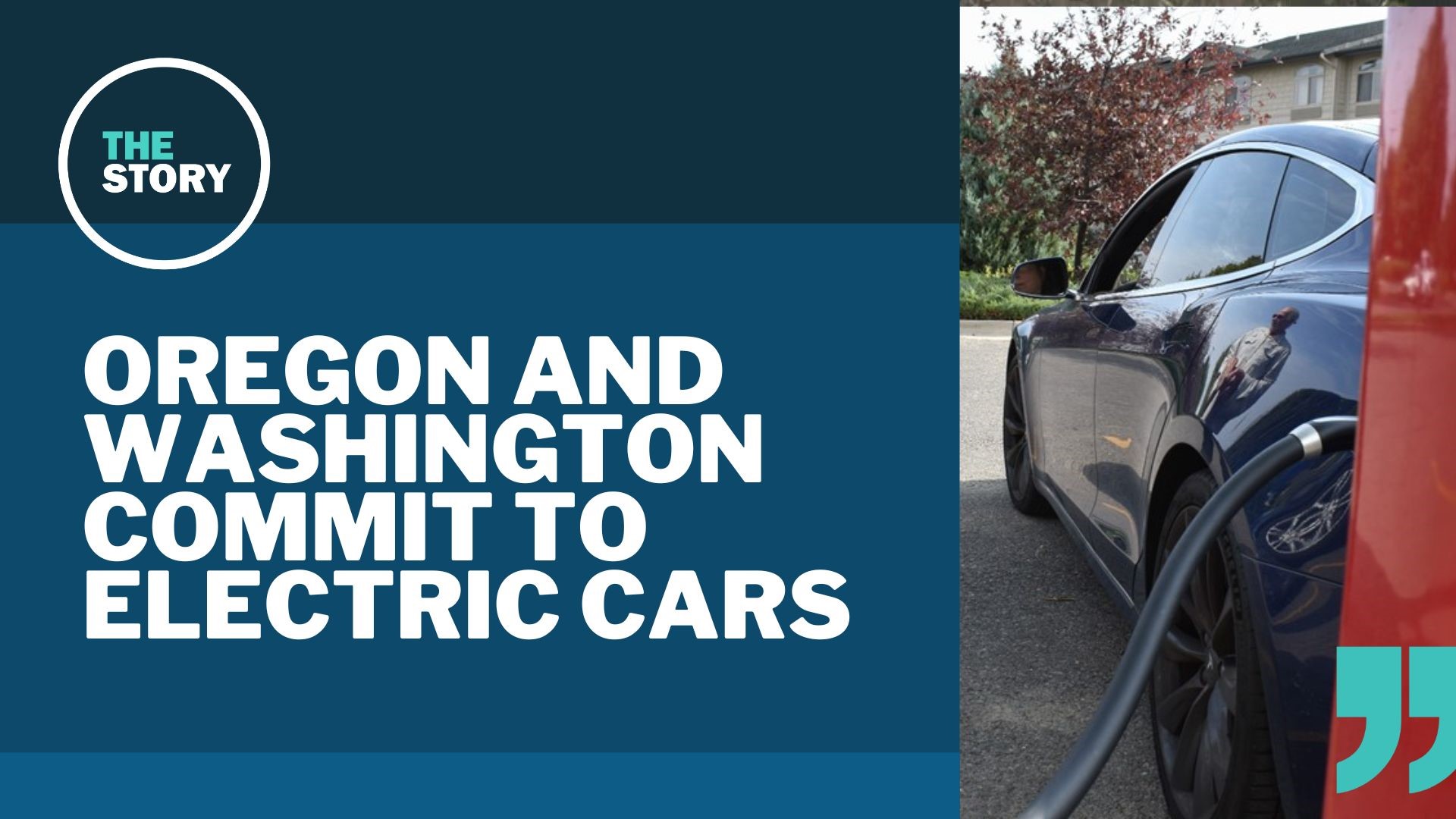PORTLAND, Ore. — In just over a decade, all new cars sold in Oregon and Washington will be electric vehicles (EVs) — that's the plan at least.
Earlier this year, California announced a statewide ban on new gas-powered cars by 2035. It's the only U.S. state that's allowed to make its own vehicle emissions rules, and it's also the most populous.
Every other state can choose to adopt federal emissions rules, which are less stringent, or follow California's rules to a tee.
Washington passed a law in 2019 committing the state to following California's vehicle emissions standards, and the state already has a lot of people driving electric cars. It recently hit the milestone of 100,000 EVs on the road.
Building enough charging stations to support a major influx in EVs will be an engineering challenge, but the Washington Department of Ecology is confident the plan will work out.
"The whole network we have to deliver fuel that gets into our cars is a completely different system. But once we get that system built, the real advantage of electric cars other than they're good for the environment is that they're cheaper to operate," said Joel Creswell with the Department of Ecology.
Washington is already taking public comment on its vehicle emissions rules, which have been written to meet California's standards.
Oregon, which adopted California's emissions standards in 2006, has about 52,000 electric vehicles on the road, most of which are in the greater Portland area.
The state plans to have EVs make up at least 35% of all new cars on the market by 2026. So even in the next four years, it's likely that local dealerships will have a lot more electric vehicles on their lots.
Like California and Washington, the plan is for EVs to make up 100% of new cars by 2035.That doesn't mean people have to sell or get rid of the gas-powered cars they already own.
The Oregon Department of Environmental Quality is still in the process of writing the rules to meet California's standards. Rachel Sakata, senior air quality planner with Oregon DEQ, held a Zoom meeting Tuesday to talk about the plan moving forward.
She said cutting emissions from gas-powered cars will have health and financial benefits for disadvantaged communities.
"Reducing these emissions overall will provide a benefit to low-income communities and communities of color who are often disproportionately impacted by transportation pollution due to their proximity to roadways. It can also result in reduced mortality, reduced hospital visits and fewer lost work days, resulting in financial savings at what we estimate is a total benefit of up to $625 million," said Sakata.
When asked how she came up with that figure, she said it came from a modified version of a report done by California.
As part of the rulemaking process, Oregon DEQ must also estimate the cost to those impacted by the transition, including manufacturers. The report estimated it will cost vehicle makers around $3 billion.
Steve Henderson, an executive at Ford Motor Company who leads the electrification team, was on the call. He said the transition will cost them much more.
"I think Ford alone has committed to — we're in the process of investing $50 billion before 2026 on our EV plan, and I know that's just Ford. The other companies are in similar spots. So there is a tremendous amount of investment being targeted for this, and that's a good thing. That's going to make this adoption happen. But it's a lot more than $3 billion," said Henderson.
Oregon DEQ will issue its proposed rules for the plan next week. There will be public hearings in mid-October before they're scheduled to take effect in December.

